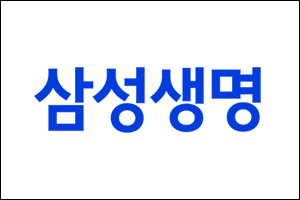Moreover, in contrast to the government’s emphasis on independent AI technology, both firms’ collaborations with global big tech companies appeared to have worked against them in the final assessments.
On August 4, the Ministry of Science and ICT announced that out of 15 participating teams in the ‘Domestic AI Foundation Model Project’, five elite teams were shortlisted following written and presentation evaluations.
The final five are Naver Cloud, Upstage, SK Telecom, NC AI, and LG AI Research Institute.
The exclusion of Kakao and KT, initially seen as frontrunners, sent ripples through the industry.
An industry insider explained, “The government focused on impact potential and contribution plans as key evaluation criteria. Both Kakao and KT have independent LLMs and have open-sourced them, yet ultimately fell short on user experience.”

Kakao CEO Chung Shina introduces the new AI service brand “Kanana” at the developer conference if(kakao), held at Kakao AI Campus in Yongin on October 22 last year. / Photo courtesy of Kakao
이미지 확대보기Kakao unveiled its AI model Kanana at its developer conference ‘if (kakao AI) 2024’ last October, alongside a declaration to evolve into an AI-native company.
In May this year, Kakao launched Kanana’s closed beta for consumer-facing services; however, it failed to gain traction. Monthly active users (MAU) plunged from 69,631 in May to 24,903 last month—an approximately 64% decline. The official Kanana release remains pending.
By contrast, Naver leverages its proprietary LLM ‘HyperCLOVA X’ to power a broad spectrum of consumer services including search, the Whale browser, and shopping platforms, leading domestic AI innovation. It is also conducting sovereign AI projects in markets such as Thailand and the Middle East.
KT was similarly critiqued for its limited experience in business-to-consumer (B2C) applications. Last July 23, KT announced the formation of an ‘AI One Team’ spanning academia, industry, and research institutes, based on its ‘Mid:Um’ AI model, aiming to broaden AI accessibility nationwide and spearhead AI transformation in the public sector.
Despite multiple public sector AI deployments—including police body cams—and AI platform projects such as a KRW 14.5 billion Supreme Court judicial support system and a KRW 13.1 billion generative AI project for Gyeonggi Province, KT's ‘Mid:Um’ series lacks expansion into consumer-facing AI products. Notably, unlike SK Telecom’s AI assistant ‘A.0’ and LG Uplus’s ‘IXI.O’, KT has yet to launch any AI agent model.

KT announced that it will release the open source of its self-developed language model “Mid:Um 2.0,” embodying the philosophy of ‘Korean AI,’ via the AI developer platform Hugging Face on July 3. Pictured are KT researchers testing Mid:Um 2.0 at the KT Umyeon Research Center in Seocho-gu. / Photo courtesy of KT
이미지 확대보기As a result, KT stands as the only major telecom operator excluded from the government programme. SK Telecom, on the other hand, formed a strategic consortium with entities such as Krafton, 42dot, Rebellion, Liner, SelectStar, Seoul National University, and KAIST, successfully securing its spot. LG Uplus collaborates through the LG AI Research Institute consortium.
Industry sources also point to a shared disadvantage for Kakao and KT in their emphasis on partnerships with foreign big tech firms. The Ministry of Science and ICT closely evaluated whether participants adhered to the core principle of sovereign AI—a domestically controlled AI ecosystem. The project’s overarching goal is to develop indigenous LLMs to underpin such sovereign AI platforms.
In February, Kakao announced a strategic alliance with OpenAI to jointly develop AI technologies and new products, including AI agents capable of autonomous decision-making and action on behalf of users. Last month, CEO Chung Shina revealed in a Forbes Asia interview that the service launch is scheduled for November.
Similarly, KT has emphasized collaboration with global giants, including a September 2023 deal with Microsoft worth KRW 2.4 trillion. Maintaining partnerships with Microsoft and OpenAI, KT pursues a dual strategy combining external alliances and continuous advancement of its proprietary AI models.
In March at Mobile World Congress (MWC), KT CEO Kim Young-seop addressed concerns over potential over-reliance on Microsoft’s AI strategy, stating: “If we are behind in capability, catching up quickly is necessary. To avoid dependence, we must create and deploy our own models in-field—even if it looks challenging.”
The five shortlisted elite teams will receive combined government support estimated at KRW 210 billion, covering data, GPUs, and human resources.
By year-end, the Ministry aims to reduce the number of supported teams from five to four through a first evaluation phase based on developed AI foundation models. The project will continue with a survival competition, eliminating one team every six months until final two remain by 2027.
Minister of Science and ICT, Bae Kyung-hoon, commented, “This bold challenge marks a beginning and a starting point for ‘AI for all’. The government will actively support the leap forward of Korean AI companies and institutions and the expansion of the sovereign AI ecosystem.”
Jeong Chaeyun (chaeyun@fntimes.com)





































![[DCM] 메리츠금융 · SLL중앙 미달…현대차그룹, 1.2조에도 경쟁률 평균 밑돌아 [1월 리뷰①]](https://cfnimage.commutil.kr/phpwas/restmb_setimgmake.php?pp=006&w=69&h=45&m=5&simg=2026021222133305295141825007d122461258.jpg&nmt=18)













![[그래픽 뉴스] 워킹맘이 바꾼 금융생활](https://cfnimage.commutil.kr/phpwas/restmb_setimgmake.php?pp=006&w=298&h=298&m=1&simg=202602021638156443de68fcbb3512411124362_0.jpg&nmt=18)
![[그래픽 뉴스] 매파·비둘기부터 올빼미·오리까지, 통화정책 성향 읽는 법](https://cfnimage.commutil.kr/phpwas/restmb_setimgmake.php?pp=006&w=298&h=298&m=1&simg=202601281456119025de68fcbb3512411124362_0.jpg&nmt=18)
![[그래픽 뉴스] 하이퍼 인플레이션, 왜 월급이 종잇조각이 될까?](https://cfnimage.commutil.kr/phpwas/restmb_setimgmake.php?pp=006&w=298&h=298&m=1&simg=202601141153149784de68fcbb3512411124362_0.jpg&nmt=18)
![[그래픽 뉴스] 주식·채권·코인까지 다 오른다, 에브리싱 랠리란 무엇일까?](https://cfnimage.commutil.kr/phpwas/restmb_setimgmake.php?pp=006&w=298&h=298&m=1&simg=202601071630263763de68fcbb3512411124362_0.jpg&nmt=18)
![[그래픽 뉴스] “이거 모르고 지나치면 손해입니다… 2025 연말정산 핵심 정리”](https://cfnimage.commutil.kr/phpwas/restmb_setimgmake.php?pp=006&w=298&h=298&m=1&simg=202601061649137526de68fcbb3512411124362_0.jpg&nmt=18)
![[신간] 고수의 M&A 바이블](https://cfnimage.commutil.kr/phpwas/restmb_setimgmake.php?pp=006&w=81&h=123&m=5&simg=2025091008414900330f8caa4a5ce12411124362.jpg&nmt=18)
![[신간] 리빌딩 코리아 - 피크 코리아 극복을 위한 생산성 주도 성장 전략](https://cfnimage.commutil.kr/phpwas/restmb_setimgmake.php?pp=006&w=81&h=123&m=5&simg=2025032814555807705f8caa4a5ce12411124362.jpg&nmt=18)
![[서평] 추세 매매의 대가들...추세추종 투자전략의 대가 14인 인터뷰](https://cfnimage.commutil.kr/phpwas/restmb_setimgmake.php?pp=006&w=81&h=123&m=5&simg=2023102410444004986c1c16452b0175114235199.jpg&nmt=18)


![[신간] 이게 화낼 일인가?](https://cfnimage.commutil.kr/phpwas/restmb_setimgmake.php?pp=006&w=81&h=123&m=5&simg=2026010610254801367f8caa4a5ce12411124362.jpg&nmt=18)

![[AD] 현대차, 글로벌 안전평가 최고등급 달성 기념 EV 특별 프로모션](https://cfnimage.commutil.kr/phpwas/restmb_setimgmake.php?pp=006&w=89&h=45&m=1&simg=20260106160647050337492587736121125197123.jpg&nmt=18)
![[AD] 현대차 ‘모베드’, CES 2026 로보틱스 부문 최고혁신상 수상](https://cfnimage.commutil.kr/phpwas/restmb_setimgmake.php?pp=006&w=89&h=45&m=1&simg=20260105103413003717492587736121125197123.jpg&nmt=18)
![[AD] 기아 ‘PV5’, 최대 적재중량 1회 충전 693km 주행 기네스 신기록](https://cfnimage.commutil.kr/phpwas/restmb_setimgmake.php?pp=006&w=89&h=45&m=1&simg=20251105115215067287492587736121125197123.jpg&nmt=18)
![[카드뉴스] KT&G, 제조 부문 명장 선발, 기술 리더 중심 본원적 경쟁력 강화](https://cfnimage.commutil.kr/phpwas/restmb_setimgmake.php?pp=006&w=89&h=45&m=1&simg=202509241142445913de68fcbb3512411124362_0.png&nmt=18)
![[AD]‘황금연휴에 즐기세요’ 기아, ‘미리 추석 페스타’ 이벤트 실시](https://cfnimage.commutil.kr/phpwas/restmb_setimgmake.php?pp=006&w=89&h=45&m=1&simg=20250903093618029117492587736121166140186.jpg&nmt=18)



